Ecuador
Judit Almeida
An excellent example of high-altitude Ecuadorian specialty coffee from a farm with strong emotional connections. We’ve found silky blood plum acidity, baked apple sweetness, and a sticky honey mouthfeel.
At Finca Campo Alegre, Juan Vergara didn’t just grow coffee beans to prepare the drink he loved so much; he and his family also spent some of the best moments of their lives there. On the farm, Juan and his wife Christine taught their daughters to ride horses, and growing up there, the girls inherited a passion for farming and coffee. For the family, this farm holds all their sentimental history, and this special environment is where the coffee grows.
Juan’s father was born in Loja and used to own a coffee farm there. The farm is no longer in the family, but Juan carried out the passion for coffee on his own farm. Juan lived in Quito and was the General Director of an industrial food company; however, the coffee farm was his private paradise. The almost 4 hectares of coffee were the garden of his dreams. Everything that Juan did in his life was with love and passion; coffee was no exception, and although it wasn’t his main source of income, it had a special place in his life and he couldn’t live without it.
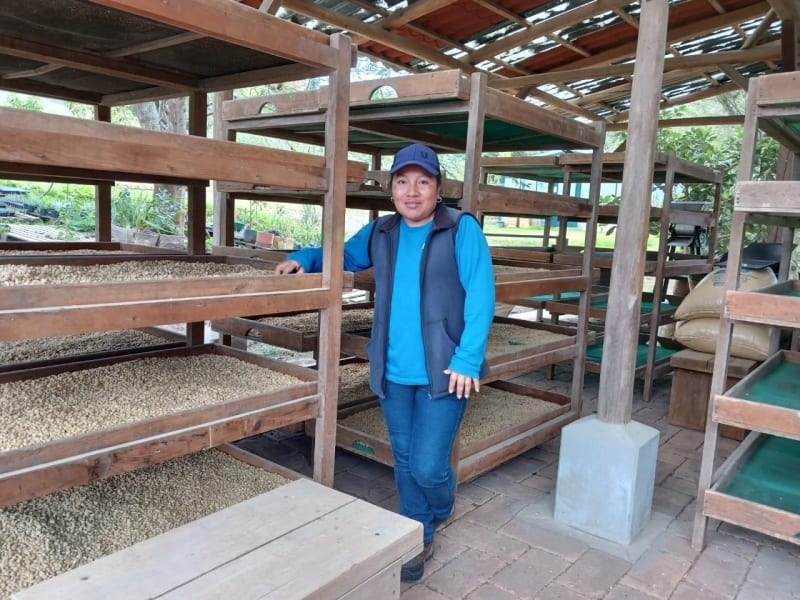
Sadly, Juan passed away due to respiratory illness in 2021, but the farm keeps producing coffee and the deliveries of coffee to Caravela’s mill are overseen by his mother, Judit Almeida.
The farm is a big estate that, besides coffee, has cattle, horses, and herbs such as eucalyptus and lavender to produce essential oils. Regarding coffee, Juan hired Emma Chalan in 2013 to fully dedicate herself to the production of coffee. Since then, Emma has been on top of coffee production, learning and being part of the changes in the process to achieve better quality, such as remembering how at first the fermentation time was 24 hours, but after the advice of technicians, they started doing 72-hour fermentations which helped towards better quality. Emma’s responsibility has always been to make the coffee business profitable at Campo Alegre, which she has achieved. For Emma, coffee is her passion; she loves it. Because of coffee, Emma has been able to provide for her daughters and enable them to become professionals.
Processing
The coffee process at Campo Alegre’s farm starts with good and selective picking of the ripe cherries, which are taken to the wet mill at the farm. There, the cherries are floated to remove the defective ones, which float because of their lower density. Afterwards, the cherries are pulped, and then the beans are floated for a second cleaning. Then, the beans are left to ferment for a period of 72 hours in water and then washed. Subsequently, the coffee is taken to the covered raised beds where it takes up to 30 days to be ready.
Sourcing and ingredients
100% Pacamara coffee beans, provided by Caravela and roasted by us on Gadigal land / Sydney.
Country grade: Unknown ?
Packaging
Bag: ABA Certified home compostable
Label: Recyclable
Valve (on bags larger than 250g): General waste
Coffee ordered online is shipped in a recyclable cardboard box
Brewing this coffee
We recommend brewing this coffee 15–49 days post-roast. If pre-ground, brew as soon as possible. Our advice on storing coffee.
1:3
dose:yield
ratio
To brew on espresso, we recommend using 20g of beans (dose) to get 60g of espresso out (yield), during 24-28 seconds.
1:16.7
beans:water
ratio
To brew in infusion/fed brewers (V60, Chemex) use a ratio of 1:16.7 ratio of beans:water.
1:14.3
beans:water
ratio
To brew in immersion brewers (plunger, AeroPress, Kalita, batch brewer) we recommend using a 1:14.3 ratio of beans:water
1:12
beans:water
ratio
To brew as cold brew we recommend using a 1:12 ratio of beans:water
Varietals
Pacamara varietal
A cross-breed between Pacas and Maragogype, developed in El Salvador in 1958
The location
Coffee from Ecuador
For a long time most of Ecuador’s coffee production was for commodity grade export or the production of soluble coffees (freeze dried coffee). Only in the last few years has the potential of the country’s coffee production been really explored. We’re very excited about the potential Ecuador and have some truly exceptional coffees
Farm processes
Washed process
Machines are used to remove the flesh from the coffee cherry before being fermented in water, washed again, and finally sun dried. This process tends to result in more distinct, cleaner flavours.

Subscribe to a world of coffee
Discover a new single origin coffee from Sample every 1-5 weeks with no delivery fees.
No up-front purchase, and you can pause, cancel, or change plans at any time.
Available to order online this week:
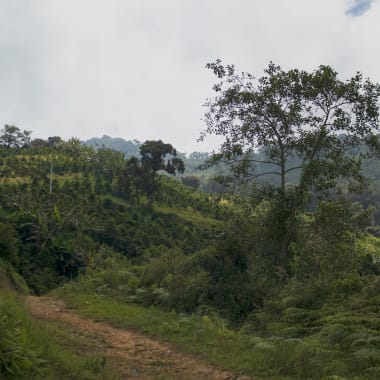
Colombia Canta Ranas
Flavours of yellow peach, orange juice, raspberry, rosehip
Body Acidity
Washed Chiroso
May 2024 harvest
Roasted omni for filter and espresso
Colombia Canta Ranas online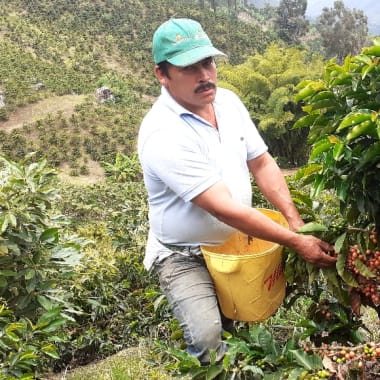
Colombia Faver Emir Ninco
Flavours of cola, cherry, blood orange
Body Acidity
Washed Pink Bourbon
March 2024 harvest
Roasted omni for filter and espresso
Colombia Faver Emir Ninco online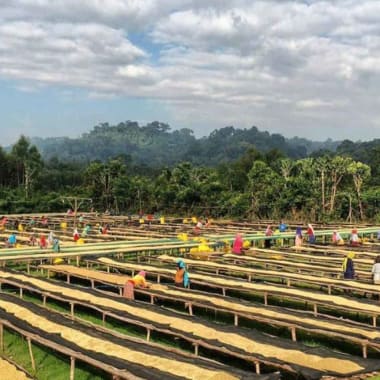
Ethiopia Kecho Anderacha
Flavours of candied lemon, white peach, bergamot
Body Acidity
Washed Ethiopian Heirloom
November 2023 harvest
Roasted omni for filter and espresso
Ethiopia Kecho Anderacha online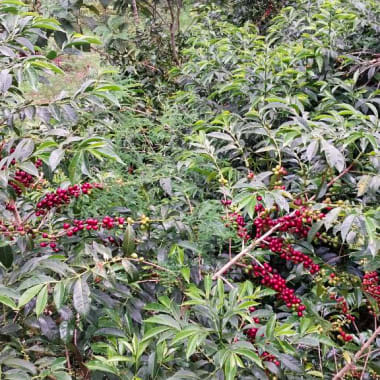
Ethiopia Bekele Gemeda
Flavours of orange marmalade, peach, apricot
Body Acidity
Washed Ethiopian Heirloom
January 2024 harvest
Roasted omni for filter and espresso
Ethiopia Bekele Gemeda online